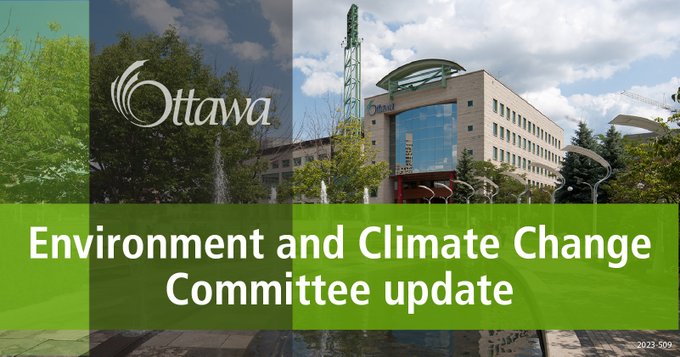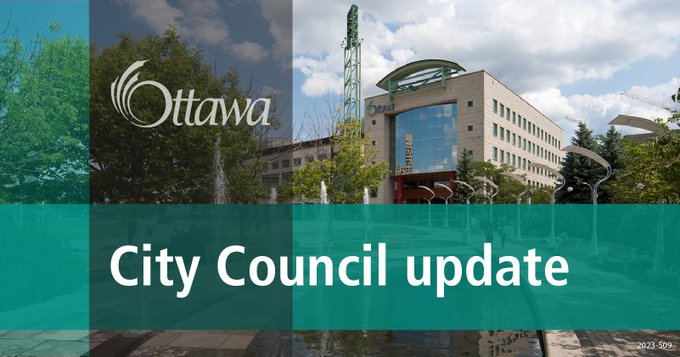The Environment and Climate Change Committee today received an overview of the City’s ongoing efforts to address urban flooding(link is external), including proactive measures in place to help reduce the impacts of flooding.
The City continues to improve Ottawa’s sewer and stormwater systems to protect against extreme rainfall and climate change impacts. The overview outlined the many tools in place to protect key assets and communities. In addition to responding during a flood event, the Committee heard how the City keeps its infrastructure safe and reliable through key plans, guidelines, design standards, and strategies that address flood resilience related to growth and housing, asset management, and long-term system improvements.
Over the past four decades Council has made considerable investments to strengthen our infrastructure against urban flooding. The City has completed special projects totaling $337.8 million to build resilience, including through the Combined Sewage Storage Tunnel, the Sandy Hill Storage Tank, the Preston Combined Sewer System, and flood mitigation projects in both Ottawa’s west end and in Orléans.
The City also offers programs that help homeowners prepare for rainfall events, including:
-
The Residential Protective Plumbing Program, which provides financial assistance to property owners to install devices such as sump pumps and storm and sanitary backwater valves to prevent water and sewage from flooding homes
-
Rain Ready Ottawa, which is a pilot program that offers home assessments and grants to help residents better manage rainwater and improve drainage on their properties
The Committee received the audited financial statements for the final year of the three-year extension to the curbside waste collection contract with the In-house Collection Group(link is external). The audit covers the 12-month period between June 1, 2022 and May 31, 2023. During this period, in-house collections saw a cumulative operating surplus of $4.5 million. Combined with the results from the previous two years, there was a total surplus of $9.3 million throughout the contract extension. The surplus is due primarily to an increase in the number of homes that received service and to lower than anticipated fleet costs.
The Committee Chair presented the 2023 Environmental Excellence Awards, recognizing City employees who have made significant contributions toward a greener and more sustainable municipality. Specifically, this award recognizes exemplary innovation, leadership and positive environmental results.
The internal award, for initiatives that reduce the City’s corporate environmental footprint, was presented to the LED Street Light Conversion Project. As of the end of 2022, the project team has converted 58,000 streetlights to LED technology, reducing energy consumption by 66 per cent and lowering maintenance costs by 50 per cent, saving the City about $6 million per year.
The community award, for projects that reduce the overall community’s environmental footprint, was presented to Rain Ready Ottawa. This pilot program helps residents take action on their own properties to reduce the harmful impacts of rainwater runoff.
Items received at this meeting will rise to Council on Wednesday, April 3.



